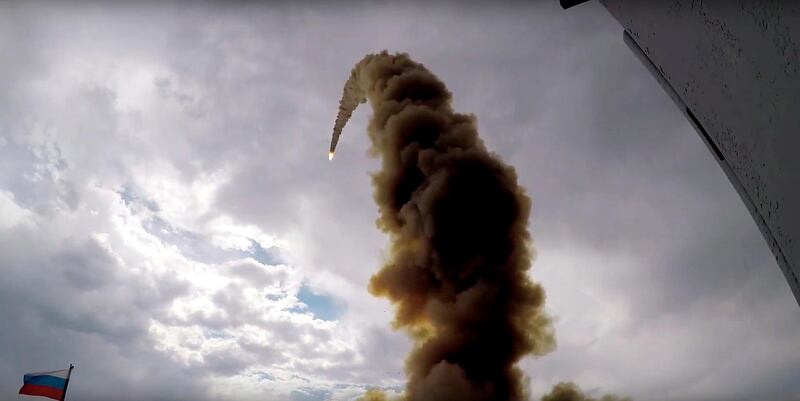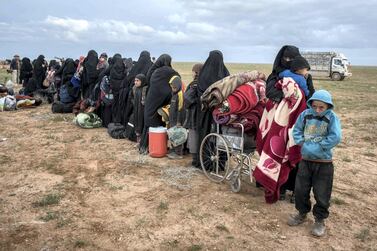Highly-anticipated arms-control talks between US and Russian officials began with a hiccough Wednesday. The discussions, during which government representatives planned to hash out proposals for new curbs in Geneva over two days, would now only last one day.
The meeting, which was announced on Monday by US senior administration officials, comes as part of US President Donald Trump’s redoubled efforts to strike a new agreement limiting nuclear arms that would eventually include not only Russia and the United States, but China too.
Mr Trump dispatched top US officials to discuss the possibility of a joint deal including China with the Russian delegation, which is headed by deputy foreign minister Sergei Ryabkov.
The US side was led by Deputy Secretary of State John Sullivan and included Tim Morrison, a senior aide at the White House National Security Council, representatives from the Pentagon, the Joint Chiefs of Staff and the National Security Agency.
It was not immediately clear why the meeting was curtailed. A statement from the State Department after the talks said that the US delegation had raised the issue of “the president’s vision for a new direction in nuclear arms control with Russia and China.”
It also said that the delegation had "underscored concerns about Russia’s development and deployment of non-strategic nuclear weapons and lack of transparency with regard to existing obligations."
The meeting in Geneva comes at a perilous time in relations between the former Cold War rivals with large nuclear stockpiles.
Aside from allegations from the United States that Russia meddled in its presidential elections in 2016, relations between Moscow and Washington have hit historic lows over Mr Putin’s annexation of Crimea from Ukraine in 2014 and for his backing for Bashar Al Assad in Syria.
Rapprochement between the United States and Russia is “hardly” likely anytime soon, Russian foreign minister Sergey Lavrov told state-run news agency TASS on Wednesday.
Indeed, earlier this month, Vladimir Putin signed a bill into law suspending Russia’s participation in the Intermediate-Range Nuclear Forces (INF) Treaty, the only Soviet-era arms control agreement between Russia and the United States that was still in place until this year.
The agreement signed by US then president Ronald Reagan and Soviet leader Mikhail Gorbachev in 1987 banned the development and deployment of ground-launched cruise or ballistic missiles with ranges of between 500 and 5,500 kilometres.
However, when Mr Trump entered the White House in 2017 he was seemingly determined to do away the INF Treaty. In late 2018, US Secretary of State Mike Pompeo accused Moscow of deploying a missile that was in breach of the agreement and set Mr Putin a 60-day deadline to comply.
Russia, which has also voiced skepticism over the deal in recent years because it allowed countries in the region like Iran and China to develop missiles unimpeded, has denied the allegations and allowed the deadline to rundown. Moscow has also accused the US of violating the terms of the agreement.
Chinese representatives are not taking part in the dialogue in Geneva this week and it remains unclear under what circumstances Beijing might be persuaded to join an arms agreement with the United States and Russia. So far China has said it has no interest in joining talks.
“At present we cannot see the preconditions or basis for China participating in these negotiations between the United States and Russia,” Foreign Ministry spokesman Geng Shuang recently told reporters in Beijing.
The collapse of the INF Treaty and Mr Trump’s push to renegotiate a deal with Russia has called into question the future of another nuclear arms control agreement, New START, which is due to expire in 2021.
US officials have said they have no intention of discussing New START, signed in 2011 between then US president Barack Obama and Prime Minister Dmitry Medvedev. One US offical speaking told Reuters it would be premature to discuss the agreement describing it as a “next-year problem.”
For Pavel Luzin, a Russian security analyst, the New START is certainly under threat. “The death of the INF Treaty” alongside “the lack of trust between the US and Russia and the current confrontation between them make the further negotiations in the field of nuclear disarmament challenging,” he said.







